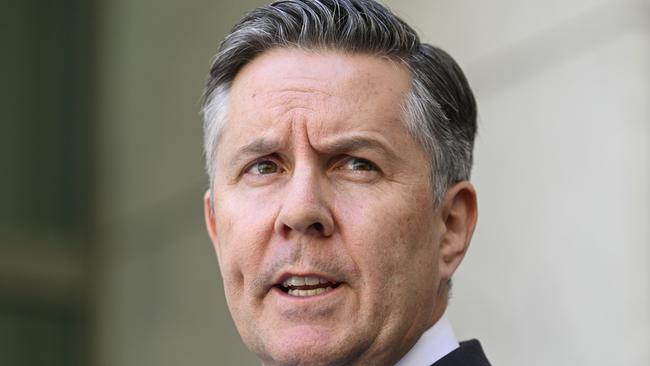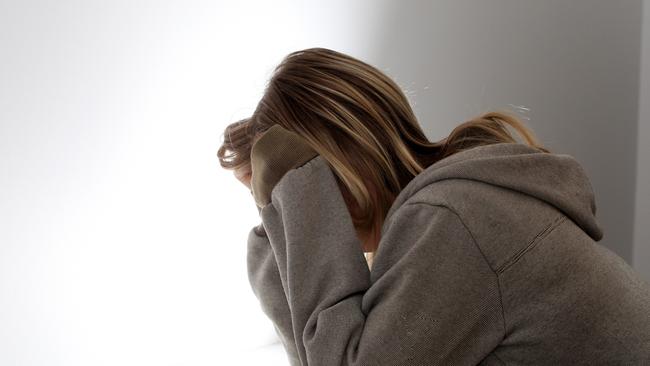‘10 does not cut it’: Mass plea for Labor to increase Medicare psychology sessions
Australians suffering from depression, anxiety, trauma and other serious conditions are being failed because of one simple reason.
Mental Health
Don't miss out on the headlines from Mental Health. Followed categories will be added to My News.
Exclusive: More than 25,000 mental health patients and experts are calling on Labor to increase the number of Medicare-subsidised psychology sessions, arguing the current limit of 10 is not enough to help Australians suffering from depression, anxiety, trauma and other serious conditions.
A coalition of nine peak bodies have united behind a petition urging Health Minister Mark Butler to lift the cap for certain disorders, warning that under the current system people are “tapping in and tapping out” of mental health support when they can afford to access it, rather than based on medical need.
They have also highlighted recent research published in the Australian and New Zealand Journal of Psychiatry showing brief psychological intervention models, such as Headspace, failed about 75 per cent of patients and “more substantive care is needed”.

Australian Clinical Psychology Association president Professor Caroline Hunt said Medicare-funded mental health sessions should not be a “free-for-all,” but argued there was a strong case for greater support in more complex cases.
“The problem is, we know that there are many people who present to psychologists with quite complex problems, disorders, conditions where 10 sessions just does not cut it,” she said.
“So what psychologists have got to decide is either to give a partial treatment and hope for the best, which we know doesn’t help, or to try and eke those sessions out, spaced across time, and we know that that’s not effective either.”
Professor Hunt said the association favoured an approach where people with particular conditions identified as needing more sessions were given that additional subsidised access.

Australian Association of Psychologists Inc president Sahra O’Doherty said the current 10-session limit was more based on budget constraints than medical or clinical advice.
But Ms O’Doherty said not giving patients enough subsidised support to adequately treat their mental health conditions costs the health system more over time as people then needed either longer or more intensive treatment.
“If it’s too large of a gap between sessions, it’s almost like people have to start from scratch, and nobody wants to be put back into that position,” she said.
“The government is pouring so much funding into what we call a ‘sprinkling of mental health support’, but all it’s doing is band-aiding the problem, as opposed to really looking at what is a system that could support not just early intervention, but ongoing and potentially long term support for people who desperately need it.”
The Coalition has pledged to raise the cap on sessions to 20 per year permanently, but Labor has so far resisted the push to do.

Health Minister Mark Butler said there could not be a “one size fits all approach to mental health”, and “reform will take time”.
“That’s why our government is taking crucial steps to transform the system into a stepped care model, expanding the range and reach of free mental health services to better cater to all Australians,” he said.
“The Albanese Government is rolling out 61 Medicare Mental Health Centres, which are free for everyone who walks in the door, open for extended hours and with no appointment or referral needed.”





